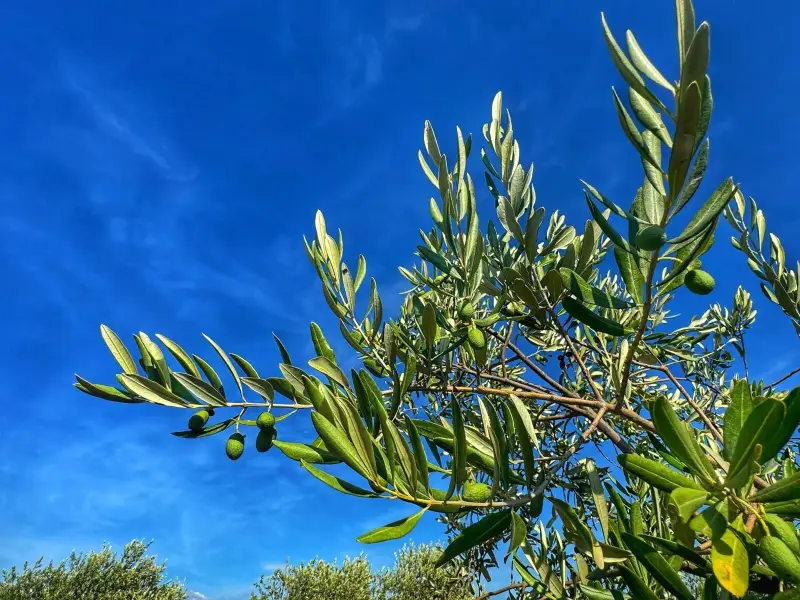The olive harvest season of 2025 has officially come to an end in Lepuri. Our oils have been produced and carefully stored — and the first bottles are already making their way to customers who follow our work year after year.
As always, the end of the harvest marks the beginning of a detailed laboratory analysis that reveals the deeper story of our oil — the part you cannot see with the naked eye, but which speaks volumes in the world of high-quality olive oil. These analyses determine whether an oil truly qualifies as extra virgin.
To earn this designation, an olive oil must meet a series of strictly defined chemical standards. Each parameter reflects a different stage of the oil’s journey: from the health of the fruit on the tree, to the conditions during processing, all the way to the purity of the final product. This year, once again, LEPUR olive oil meets — and exceeds — every requirement.
🫒💚 How Healthy Was the Olive Fruit? – Acidity (≤ 0.8%)
Acidity is the most well-known indicator of olive oil quality. It reflects the condition of the olive fruit at the moment it enters the mill.
LEPUR olive oil consistently achieves exceptionally low acidity levels because we hand-harvest only healthy olives and process them the very same day — with no waiting, no fermentation, and no degradation of the raw material.
💨❄️ How Much Heat and Oxygen Was the Oil Exposed To? – Peroxide Value (≤ 20)
The peroxide value measures how much the olive paste has been exposed to heat and oxygen — two major threats to freshness and stability.
At the LEPUR mill, the olive paste is continuously cooled and malaxed under fully controlled conditions throughout the entire extraction process.This is one of our key technological advantages: most mills in Dalmatia do not use paste-cooling systems, which accelerates oxidation and reduces quality. By keeping temperature strictly controlled, we preserve the oil’s exceptional freshness, aroma, and stability.
🔬🌿 Has the Oil Experienced Early Oxidation? – K232 (≤ 2.50)
K232 measures early oxidation compounds that can form if oil is exposed to heat or light.
Thanks to rapid processing, clean paste, and consistent temperature management, this parameter remains reliably low in LEPUR olive oil.
🌱✨ Is There Secondary Oxidation — or High Polyphenols? – K268 (≤ 0.22)
K268 indicates the presence of secondary oxidation compounds — those that appear when an oil begins to age or when the paste has been exposed to higher temperatures during processing.
At the same time, it is important to note that certain polyphenolic compounds naturally absorb UV light at 268 nm, which is why early-harvest, high-phenolic oils — like LEPUR — may occasionally show a slightly higher K268 value even when no oxidation is present.
For this reason, K268 must always be interpreted together with K232, the peroxide value, and ΔK. This season, the secondary oxidation indicators in LEPUR oil are exceptionally low, confirming both freshness and excellent processing conditions.
🧪🤍 Is the Oil Truly Pure and Unmixed? – ΔK (≤ 0.01)
ΔK is the strictest indicator of purity and authenticity.
A result of ΔK = 0.00, achieved once again by LEPUR olive oil this season, confirms that the oil is:
-
100% from first extraction
-
not blended with other oils
-
not refined or technically corrected
-
properly filtered and stored
In short, ΔK is the laboratory’s confirmation that the oil is completely pure, natural, and technically flawless.
✨ LEPUR Olive Oil: A Fusion of Craftsmanship, Technology, and Respect for the Olive
Year after year, we strive to improve — from careful cultivation in the grove, through timely harvest and rapid processing, to advanced paste-cooling systems and precise extraction technology. Our olive trees reward this dedication with oils of vibrant green character, remarkable freshness, exceptionally low acidity, and a naturally high concentration of polyphenols.
Thank you to our olive trees.And thank you to everyone who recognises and supports our work.
LEPUR Olive Oil. 🫒✨ #LEPUR_Beyond_Extra_Virgin_Olive_Oil

Add comment
Comments